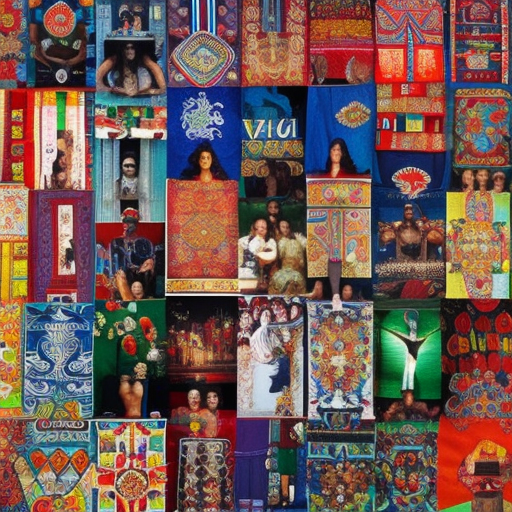Cultural Diversity: Embracing Differences and Celebrating Similarities
Cultural diversity refers to the existence of a variety of cultural or ethnic groups within a society, organization, or community. It encompasses the differences in language, traditions, customs, beliefs, values, and behaviors that exist among individuals from different backgrounds. Cultural diversity is not limited to racial or ethnic differences, but also includes diversity in gender, age, religion, sexual orientation, socioeconomic status, and abilities.
Importance of Cultural Diversity
Cultural diversity is essential for the enrichment and development of societies. It promotes tolerance, understanding, and respect among individuals from different backgrounds. By embracing cultural diversity, societies can benefit from a wide range of perspectives, ideas, and experiences, leading to innovation, creativity, and problem-solving. It also fosters social cohesion, as individuals learn to appreciate and value the differences that make each person unique.
Benefits of Cultural Diversity
1. Enhanced creativity and innovation: Cultural diversity brings together individuals with different perspectives, experiences, and knowledge. This diversity of thought can lead to the generation of new ideas, approaches, and solutions to problems.
2. Improved decision-making: When diverse individuals come together, they bring a variety of viewpoints and insights to the table. This diversity of perspectives can lead to more informed and well-rounded decision-making processes.
3. Increased adaptability: Cultural diversity encourages individuals to be open-minded and adaptable to change. Exposure to different cultures and ways of thinking helps individuals develop flexibility and resilience, enabling them to navigate diverse environments more effectively.
4. Enriched learning experiences: In educational settings, cultural diversity enhances the learning experiences of students. Exposure to different cultures and perspectives broadens students’ horizons, promotes critical thinking, and encourages empathy and understanding.
5. Strengthened social cohesion: Embracing cultural diversity fosters social cohesion by promoting inclusivity, equality, and respect for all individuals, regardless of their background. It helps build stronger communities where everyone feels valued and included.
Challenges and Solutions
While cultural diversity brings numerous benefits, it also presents challenges that need to be addressed. These challenges include stereotypes, prejudice, discrimination, and cultural clashes. To overcome these challenges, it is crucial to promote intercultural dialogue, education, and awareness.
1. Intercultural dialogue: Encouraging open and respectful communication between individuals from different cultures can help bridge gaps and foster understanding. This can be achieved through cultural exchange programs, community events, and dialogue platforms.
2. Education and awareness: Promoting cultural diversity education in schools and workplaces can help combat stereotypes and prejudice. By learning about different cultures, individuals develop empathy, respect, and appreciation for diversity.
3. Equal opportunities: Ensuring equal opportunities for individuals from all cultural backgrounds is essential in creating a fair and inclusive society. This includes promoting diversity in hiring practices, providing language support, and addressing systemic barriers.
4. Legislation and policies: Governments and organizations can implement policies and legislation that promote cultural diversity and protect the rights of individuals from different backgrounds. This can include anti-discrimination laws, diversity quotas, and cultural heritage preservation initiatives.
Conclusion
Cultural diversity is a fundamental aspect of human society that should be celebrated and embraced. It brings numerous benefits, including enhanced creativity, improved decision-making, and strengthened social cohesion. However, it also presents challenges that require open dialogue, education, and awareness to overcome. By valuing and respecting cultural diversity, societies can create inclusive environments where everyone can thrive and contribute their unique perspectives and talents.












